How to Care for a Pet French Lop Rabbit
French lop rabbits were bred from English lops and giant papillons (also known as checkered giants) so they have both the size and the floppy ears of their ancestors. These rabbits are hardy and can make great pets due to their calm demeanor. Knowing how to properly care for these gentle giants can help them live a long and happy life.
Species Overview
Common Name: French lop rabbit
Scientific Name: Oryctolagus cuniculus
Adult Size: Typically 10-15 lbs but can be heavier
Lifespan: About five to eight years but can live up to 12 years
French Lop Rabbit Behavior and Temperament
A French lop rabbit can make a great pet for someone looking for an alternative to a cat or guinea pig. French lops are often described as being calm, placid, and relaxed, and they are easygoing animals known to be playful and smart. Rabbits are not aggressive creatures and are more likely to run away than to try and nip if they are scared or threatened, so they make great pets for adults and children alike. They are most active at dawn and dusk but can often be found lounging around and napping during the day and evening.
Size Information
French lops are big bunnies! It's normal for a French lop to weigh at least 10 pounds, but it's also not abnormal for them to weigh over 15 pounds. They also have large heads and big, floppy ears, but their ears aren't as long as their English lop ancestors.
Housing
All rabbits, including French lops, need a lot of space to run and play, but when they aren't hopping around, they also need a secure place to sleep. If your adult French lop rabbit is an indoor rabbit, a minimum cage size of 4.5 feet by 4.5 feet should be provided, but larger enclosures will be needed for larger French lops. Store-bought cages are available, but many people create their own rabbit enclosures using exercise pens, dog crates, and other items. Outdoor rabbit hutches can also be bought or made but should be especially secure to prevent your rabbit from escaping or being injured or killed by a predator.
Specific Substrate Needs
If you choose to use a substrate in your French lop's house, avoid cedar and pine shavings. These beddings can be aromatic and contain oils that cause respiratory and skin issues. Opt for aspen, timothy hay, or recycled paper materials instead if you want to provide your lop with some bedding to sleep in. Litter boxes can also contain these substrate options or you can use hay or unscented, dust-free cat litter.
What Do French Lop Rabbits Eat and Drink?
Like other rabbits, French lop rabbits need to eat a variety of vegetables and hay to stay healthy. Depending on the size of your lop, about 1/2 - 3/4 cup of rabbit pellets without seeds or colored pieces can be provided (base this off their weight and what your food recommends for that size of rabbit), but the majority of their meals should be composed of grass hays and dark, leafy greens. You can also give them occasional treats of sugar-free cereals, crackers, fruits, and vegetables that aren't green. Remember though, if your rabbit's diet isn't appropriate, they're more likely to develop ileus.
Common Health Problems
French lop rabbits can unfortunately develop a variety of health problems. Some of the most common issues seen in rabbits include:
- Dental issues
- Ear mites and infections
- Skin mites and infections
- Eye problems
- Respiratory issues
- Ileus (gastrointestinal stasis)
- Reproductive organ issues
All of these health problems and many others will require the help of a veterinarian experienced in rabbit care.
Training Your French Lop Rabbit
French lop rabbits are very smart and can be trained to do simple tricks as well as come when called and use a litter box. Some people even teach them to walk on a harness and leash or fetch toys.
Leash Training
If you want to train your French lop rabbit to walk on a leash, be sure to attach the lead to a harness that is designed for your size of rabbit. French lops are big bunnies, so you don't want a harness that's too tight. Verbal coaxing, as well as treats, can help encourage your rabbit to walk toward you while getting used to being attached to a leash.
Potty Training
With a little patience and consistency, you can train your French lop rabbit to use a litter box. This will make you more likely to let them roam around in a rabbit-proofed environment because you won't have to worry about cleaning up any potty mishaps.
Exercise
Exercise is vital to your French lop rabbit's mental and physical health. Your rabbit needs space to run and play so they can forage for food, receive mental stimulation, find things to chew on, maintain muscle mass, and keep the digestive tract properly moving. Gastrointestinal motility can decrease or stop because of stress and a simple lack of physical mobility, so exercise should not be forgotten.
Grooming
French lop rabbits don't have long hair but that doesn't mean they don't have grooming needs. Nail trims, ear cleanings, baths, and perhaps even tooth trims may be necessary, depending on your specific rabbit and their lifestyle. Keeping the ears clean is especially important because they flop over and can easily collect debris and hold in moisture.
Shedding
Rabbits shed on a regular basis but major molts or sheds occur twice a year in the spring and fall. During these major sheds, your French lop will lose more fur than normal.
Brushing
While French lop rabbits don't have very long hair, they do have pretty dense fur so you may still need to occasionally brush them. Brushing can help decrease the amount of fur you find around the house and on your clothes, so some breeders recommend weekly brushing with a soft bristle brush.
Baths
Rabbits are typically very clean animals so bathing them may not be necessary, but if they get messy, a quick cleaning of the soiled area is a good idea. Don't submerge your rabbit in water for baths but instead only clean the messy areas as needed. Bunnies can get cold during baths and develop ileus, so you want to avoid accidentally giving your French lop a chill.
During bath time, use dish soap and lukewarm water while carefully cleaning your rabbit. When all of the soap is rinsed off, towel dry them thoroughly. Be extra careful with their delicate ears and be sure to avoid spraying water into them.
Upkeep Costs
French lop rabbits may cost more than you expect to care for. This is due to needing to provide fresh vegetables, hay, and pellets on a daily basis. Expect to spend around $75 a month just for food and another $10-$20 on toys and bedding. Additionally, you'll want to budget for routine and emergency vet visits for when your rabbit requires medical attention.
Pros & Cons of Keeping a French Lop Rabbit as a Pet
Rabbits require a lot more space and attention than many people think, but they're also very personable pets. They require fresh vegetables to eat each day but can be cuddly and playful.
Similar Pets to the French Lop Rabbit
If you’re interested in pet French lop rabbits, check out:
- Guinea Pig Species Profile
- Chinchilla Species Profile
- Degu Species Profile
Otherwise, check out other types of rabbits that can be your new pet.
Purchasing or Adopting Your French Lop Rabbit
The American Rabbit Breeders Association is one resource for finding a breeder but some pet stores, rabbit shows or expos, and 4-H clubs are also good resources. You can expect to pay anywhere between $30 and $100 for a French lop, but prices will vary depending on pedigree and color. If you are looking to rescue a French lop rabbit, you can contact your local House Rabbit Society chapter to see if they have recommendations for rabbit rescues or contact local rabbit rescues directly.
Reproduction/Breeding
If you decide to get more than one rabbit and they are of opposite sexes, you'll want to get your female spayed to prevent unwanted litters and prolong their life by avoiding reproductive diseases like cancer. Alternatively, you can get two females if you want two rabbits but if you want to get two males, you'll need to get them neutered if you want to keep them from fighting with each other. Neutering and spaying your rabbits is always a good idea, even if the likelihood of breeding and fighting is low.
- Does a French lop rabbit make a good pet for kids?
Yes! French lop rabbits are calm and sturdy rabbits, two qualities that are great for a kid's pet.
How much does it cost to buy a French lop rabbit?Prices will vary, but French lops are a little more expensive than some other rabbit breeds. Expect to pay between an average of $50 for a French lop.
Is a French lop rabbit hard to take care of?French lop rabbits require the same level of care that other rabbits require. Additional ear care may be needed, but it is not hard to care for them.
RECOMMENDED NEWS
 exotic-pets
exotic-petsShould You Keep a Skunk as a Pet?
When born and raised in captivity, skunks can make friendly, intelligent, and unique pets. They can...
Read More → ferrets
ferretsDiarrhea in Ferrets
Ferrets, just like other pets, are unfortunately prone to several ailments, and diarrhea is a commo...
Read More → rats
ratsRat Personality, Intelligence, and Care
While rodents may scare some people and get a bad reputation, rats are extremely intelligent animal...
Read More → guinea-pigs
guinea-pigsGuinea Pig Health Problems and How to Treat Them
A sick guinea pig may show several signs depending on the type of illness present. While they are u...
Read More → guinea-pigs
guinea-pigsHow to Care for a Pet Teddy Guinea Pig
Guinea pigs are large rodents that don't have tails, and their fur can come in a variety of texture...
Read More → rabbits
rabbitsHow to Warm up a Cold Baby Bunny
Once in a while, a rabbit will give birth somewhere other than a nest box. The husbandry terminolog...
Read More → rabbits
rabbitsHow to Keep Rabbits Cool in Summer
Rabbits are very active animals who love spending time outside in the summer and running around the...
Read More → exotic-pets
exotic-pets150 Fun and Unique Duck Names for Your Feathered Companion
Naming your pet duck is a fun experience, whether you have one duck, a pair, or an entire flock. A ...
Read More → exotic-pets
exotic-pets135 Cow Names for Your Bovine Companion
Cows make interesting companions who are intelligent, social, and friendly, so when you get one of ...
Read More →

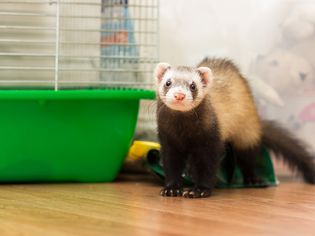
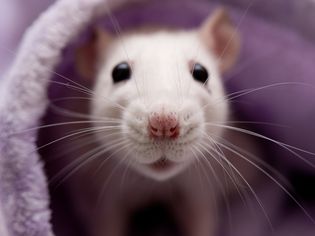
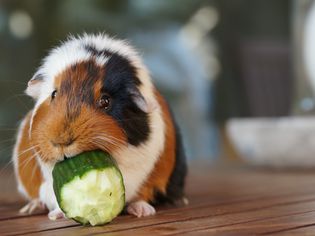
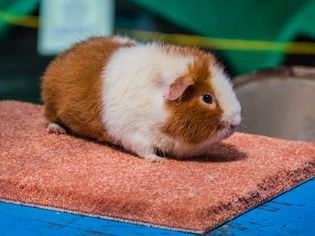



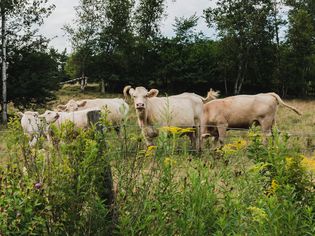
Comments on "How to Care for a Pet French Lop Rabbit" :